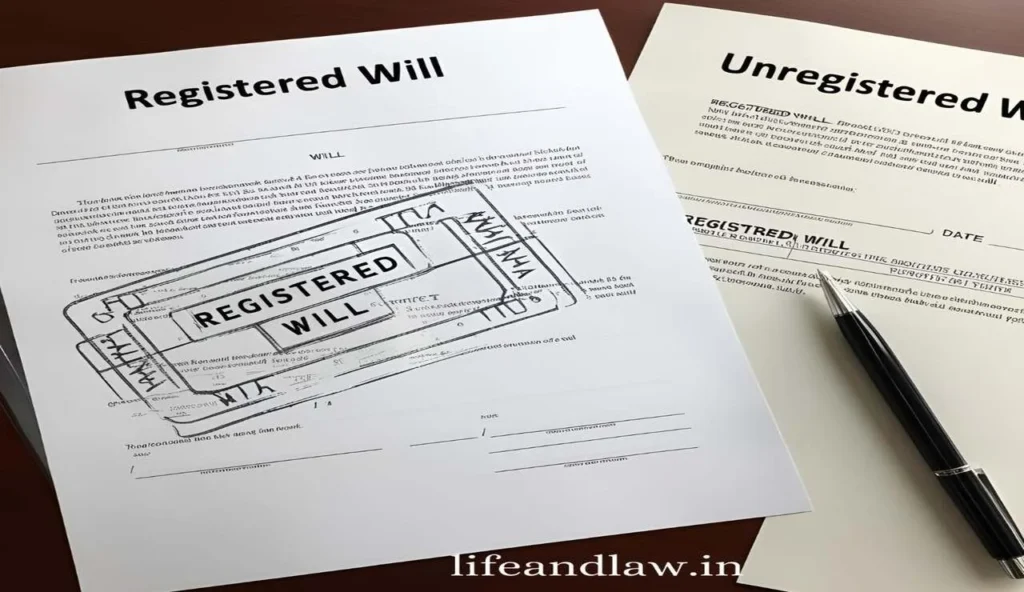Trending

A will is critical for the distribution of a person’s assets and honouring their desires. While making a will is an expression of a person’s rights, it must adhere to specific legal procedures and circumstances in order to be legally binding. Although it is a personal right in India to create a will, many people are unsure if registering the will is required to make it legally binding. Some feel that a will is not valid unless it is registered, while others believe that simply signing it is sufficient to make it legally binding.
The goal of this article is to address an essential subject about will registration – specifically, whether registration is required or not.
Registration is the formal recording of a will at the Sub-Registrar’s Office, which officially enters it into government records. Once registered, the government maintains a record of the will’s existence and legitimacy.
To make a will legally valid, certain conditions must be met. These prerequisites are listed in the Indian Succession Act of 1925. The conditions are as follows.
A registered will has several significant legal advantages. To begin with, a recorded will has far greater credibility. During registration at the Sub-Registrar’s Office, the testator’s identity and mental state are checked, which strengthens the evidence that the will is authentic and not forged. This makes it easier to prove its legitimacy in court later.
Second, because a registered will becomes part of official government documents, there is less chance of fraud or the presenting of a fraudulent will. Even if a dispute develops years later and the original witnesses are unavailable, a registered will acts as independent proof.
Furthermore, a registered will reduces the possibility of legal conflicts in court because the documentation and proof involved with registration are robust. Furthermore, a copy of the registered will is securely stored at the Sub-Registrar’s Office, so that if the original is lost or destroyed, a certified copy can be easily obtained.
Overall, a registered will helps to avoid future disputes and facilitates asset distribution. As a result, even though registration is not required, having a will registered is regarded as legally sound and secure.
Prepare the Will
When draughting the will, it is critical to include the testator’s full name and address, asset details, and beneficiary names. The will must include the testator’s signature or thumb impression, as well as the signatures of two or more witnesses. The witnesses should either observe the testator sign the will or be assured by the testator that the document has been signed by him or her. Witnesses play an important part in verifying wills.
Prepare Valid Identification Documents
To register a will, the testator must provide proper identification verification. Generally, one of the following documents must be presented: Aadhaar Card, PAN Card, or Passport. This ensures the testator’s identity and authority. Similarly, the witness’ identification documents are verified.
Visit the Sub-Registrar’s Office
The registration process begins at the Sub-Registrar’s Office. The testator, or their legal representative, must be physically present to complete the registration. To prove their identification, the testator must provide a valid ID at the office. The Sub-Registrar reviews the paperwork and begins the registration procedure depending on eligibility. At this point, getting advice from legal specialists like Adv. Abdul Mulla through websites such as http://www.asmlegalservices.in , http://www.easywillindia.com , or http://www.lifeandlaw.in can be quite advantageous.
Confirm Mental Fitness
Before registration, the Sub-Registrar analyses the testator’s mental state. The goal is to ensure that the will is expressed voluntarily and with complete mental clarity. The testator should be free of any pressure and completely informed of the decisions being taken. This step increases the legal validity of the will.
Pay the Registration Fee
A little cost must be paid to register the will. The amount and method of payment may vary by state. The Sub-Registrar Office provides information on the applicable fees and payment procedures. Once the price is paid, the registration process begins.
Registration Process
During the registration process, the Sub-Registrar validates all documents, stamps the will, and signs it to legally register it in government records. A certified copy of the registered will is then provided to the testator. This copy is the official and safe version of the will.
Confirmation of Registration
Following registration, the will is safely maintained in official government records. This ensures that the existence and authenticity of the will are officially documented. Once the certified copy is received, the testator can rest assured that their will is legitimate and safe.
Registration of a will is not required for its legal validity, but it does provide numerous major benefits. A registered will is regarded as more secure and difficult to contest in court. Registering a will decreases the possibility of suspicions regarding its legitimacy and helps to prevent family disputes.
It is critical to acquire adequate legal assistance when draughting a will. With adequate legal advice, a person can ensure that all legal requirements of the will are met, preventing potential legal issues in the future. In such instances, consulting Adv. Abdul Mulla—via platforms such as http://www.asmlegalservices.in, http://www.easywillindia.com, or http://www.lifeandlaw.in — can be extremely helpful.
Adv. Abdul Mulla (Mob. No. 937 007 2022) is a seasoned legal professional with over 18 years of experience in advocacy, specializing in diverse areas of law, including Real Estate and Property Law, Matrimonial and Divorce Matters, Litigation and Dispute Resolution, and Will and Succession Planning. read more….
Copyright BlazeThemes. 2025